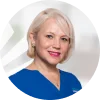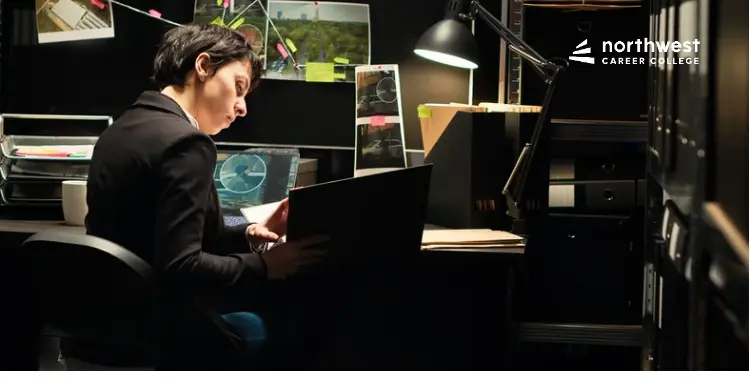The Difficulties of Rejoining Society After a Felony Conviction
- Criminal Justice
- April 11, 2025
- 3.6k views
- 6 min read

The myth constructed around the US justice systems is the once a felon has been convicted, incarcerated, theoretically rehabilitated and the released, that they are free to rejoin society, having served their time, so to speak.
The reality is that there are overwhelming barriers to those who have served their time become useful parts of society again, from an inability to get employment to felony disenfranchisement laws that prevent them from taking part in our democratic system.
It’s easy to see felony convicts as hardened criminals serving long sentences for horrible crimes, but a recent U.S. Department of Justice study showed that, on average, a felony conviction results in as little as three years in prison, meaning most offenders still have the vast majority of their life ahead of them.
If you want to see the negative side effects of the inability to reintroduce former prisoners back into society, you need look no further than another Department of Justice study that found that 76 percent of the thousands of inmates studied were arrested again within five years of their release. So what are the barriers faced by convicts trying to reenter society?
Table of Contents
What Is a Felony Conviction?
Before we cover the issues facing prisoners returning to society, it’s best that we more thoroughly define the terms we are using. A felony conviction indicates that the crime committed was a serious one, ranging from armed robbery, murder, and sexual assault. However, felonies also include drug-related crimes and inmates are far more likely to be incarcerated for low-level drug possession as they are for murder.
Getting a Job Is Hard
For those just finishing one of our courses, it can seem like getting a job is excruciatingly hard. Imagine how hard it would be if you also had to include your felony conviction on every resume you sent out!
Employers are understandably wary of employing a former felon, especially in light of those re-offending stats we mentioned earlier. Federal regulation also put them in a ticky spot when it comes to employee liability. Employers can be sued and held liable for negligent hiring practices if they don’t do their due diligence in examining employee backgrounds.
This means that in the vast majority of situations, employers won’t even offer a convicted felon an interview, opting to err on the side of safety and employee someone without a crime listed on their C.V. Not having a job leads to a huge range of economic disadvantages and makes it far more likely that former felons will turn to illegal activities in order to make money.
While the Federal Government does offer tax incentives to employers who hire people from groups facing significant barriers to employment, such as former felons, and reformers are pushing to have the requirement to list former convictions on a job application removed, the hiring rate among those who have served their time remains extraordinarily low.
No Place to Live
Former convicts do not represent a protected class of citizens, meaning that landlords can, and do, refuse to rent properties to them. This can often mean that former prisoners just released from prison are moving directly back into the environment which first encouraged their felonious behavior.
The lack of housing, coupled with an inability to get a job, has led to a startling rise in homelessness amongst recently released prisoners, and a concurrent rise in drug use and criminal recidivism.
Limited Educational Options
Around 14 percent of all the adults in the U.S have no high school diploma or GED. Compare this to the approximately 30 percent of convicted felons did not have a high school diploma or GED and it easy to see why the Department of Education list current and former felons as one of the most educationally disadvantaged groups in America.
While some prisons do offer educational courses, the drive to reduce spending on prisons and the rise of for-profit private prisons has significantly reduce the number and availability of such resources.
Added to this is the fact that inmates are no longer eligible for Federal educational funding, such as the Pell grants, and that, depending on the circumstances, certain drug convictions may impact eligibility for educational financial aid, and it is easy to see why education is no longer an option for a huge number of felons.
An Inability to Vote
In any democracy, the ability to vote in elections is a key part in becoming a societally engaged citizen, which is why is it amazing that 35 states prevent persons on parole from voting and additional 12 states have laws that either permanently ban felons from voting or require significant waiting periods before being eligible to vote again.
This means that literally millions of people in a country held up as a shining example of modern democracy are unable to vote even after they have completed their sentence, parole or probationary period.
While reform groups like FairVote and the American Civil Liberties Union (ACLU) are actively trying to change these laws, the power to do so is in the hands of state governments, who have traditionally been disinclined to address such a divisive subject.
Who Cares?
Aside from the moral and social benefits of helping former prisoners who have served their time reintegrate into society, there are financial benefits to be had.
In 2015, the Federal Bureau of Prisons found the average yearly cost of federal imprisonment was just under $32,000 per inmate, and it should be remembered that federal inmates represent a comparatively small portion of the total prison populations.
Rehabilitation, education and social re-entry programs pay for themselves by reducing that cost. A 2013 study by the RAND Corporation found that every dollar invested in prison education reduced the overall incarceration costs by as much as four to five dollars, during the first three years after the prisoner has been released, simply because of a significantly lowered recidivism rate.
Join Our Criminal Justice School Today!
Qualifying from our Criminal Justice School puts you in an excellent position to access a variety of employment opportunities as you look for one that suits your skills and interests. At Northwest Career College, our Criminal Justice instructors include licensed, practicing attorneys and degree instructors able to teach, not only the law but also to guide our students in the many ways a criminal justice graduate integrates into a Las Vegas legal profession.
As part of our Criminal Justice Program, you’ll visit courts, jails, meditation centers and more to experience first-hand the law in action which will make your criminal justice training applicable to the Las Vegas legal system. Northwest offers a flexible blended program with all criminal justice classes Las Vegas law classes taught on campus by an attorney and general education courses offered online. Our experienced instructors are on-campus to review and support your learning experience at all times.
Call us at (702) 403-1592 to speak to one of our enrollment team about joining our Criminal Justice Program today!



